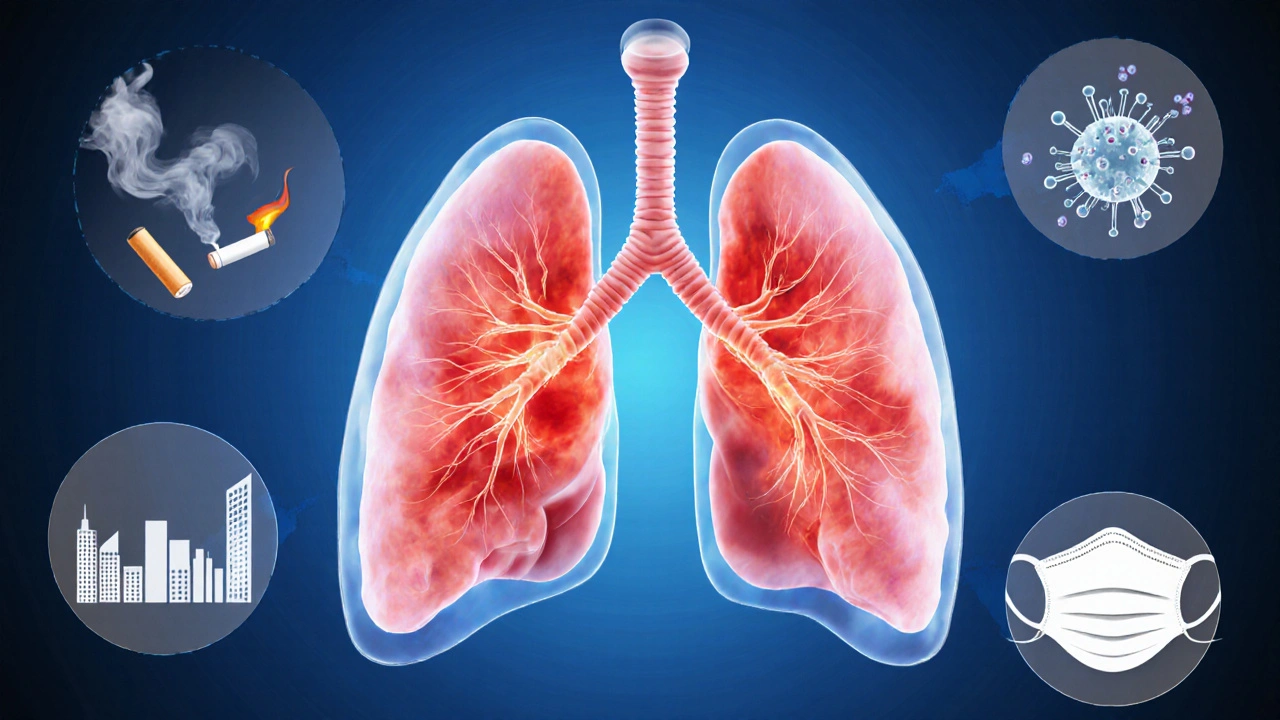Lung Inflammation
When working with Lung Inflammation, the swelling and irritation of lung tissue that can hinder normal breathing. Also known as pulmonary inflammation, it usually points to an infection, an allergic reaction, or a chronic disease. Understanding how the lungs react helps you spot problems early. lung inflammation often shows up as a persistent cough, shortness of breath, or chest tightness, and it can worsen if the underlying cause isn’t treated.
Related Conditions that Drive Lung Inflammation
One of the most common triggers is Pneumonia, a bacterial, viral, or fungal infection that fills the air sacs with fluid. Pneumonia requires prompt antibiotic therapy, and if left unchecked it can turn a mild inflammation into severe respiratory distress. Another frequent culprit is Bronchitis, inflammation of the bronchial tubes that carry air to the lungs. Bronchitis influences lung inflammation by producing excess mucus and irritation, often triggered by smoking or viral infections. Chronic conditions like Asthma, a hyper‑reactive airway disease that causes episodes of wheezing and breathlessness also play a big role; asthma attacks can amplify existing inflammation and lead to long‑term damage. Finally, COPD, chronic obstructive pulmonary disease, a progressive loss of lung function mainly from smoking creates a background of persistent inflammation that makes infections more dangerous.
Treating lung inflammation means tackling the root cause. Antibiotics target bacterial pneumonia, while antiviral meds may help with viral forms. Inhaled corticosteroids or oral anti‑inflammatories reduce swelling in asthma and COPD flare‑ups. Lifestyle steps—quitting smoking, using air purifiers, and staying hydrated—support recovery and lower the risk of recurrence. Below you’ll find articles that dive deeper into each condition, explain medication choices, and share practical tips for managing symptoms day‑to‑day.

Lung Inflammation: Proven Ways to Prevent and Manage It
Learn why lungs inflame, how to stop it, and practical steps to manage symptoms. Get prevention tips, medication guidance, and lifestyle advice for better lung health.
Read more